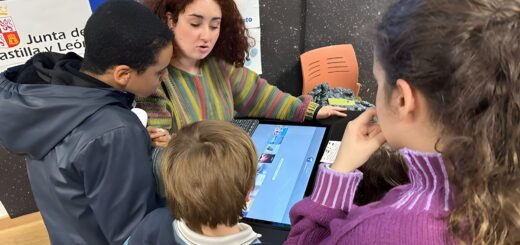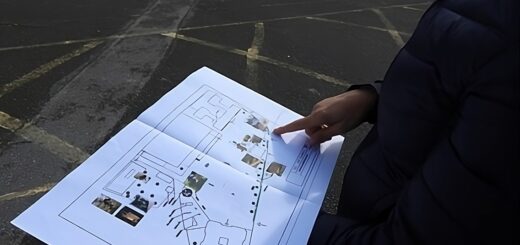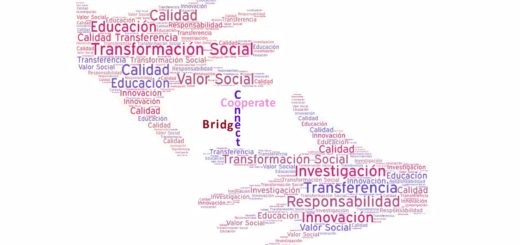The educational space in the digital transformation: Future Classroom
In Future Classroom, students explore problems, produce ideas and create projects while integrating digital technologies in the process. These environments transform the traditional roles of teacher and student. They offer students greater independence and control in the learning process that takes place in the classrooms of the future. It is essential that students are active and engaged as they work on problem solving, exploring and generating ideas and projects and integrating technology into the process. A very relevant component of the Future Classroom concept is that it identifies different learning zones. Each zone develops an element of the teaching-learning process. The six zones are the following: (1) Research, which is the inquiry-based learning space where students acquire thinking skills and critical capacity; (2) Create, which is the space where students plan, design, produce and disseminate their creations; (3) Present, as the space where students present, communicate, disseminate, show, deliver and get feedback on their work, by the teacher and by their own peers, enabling them to learn sharing and communication skills; (4) Interact, as the space where students learn to share and communicate skills; (5) Create, as the space where students plan, design, produce and disseminate their creations; (6) Present, as the space where students present, communicate, disseminate, show, deliver and get feedback on their work, by the teacher and by their own peers, enabling them to learn to share and learn communication skills. (4) Interact, as the space where students are actively engaged through an interactive socio-dynamic learning zone; (5) Exchange, as the space where students work collaboratively, encouraging responsibility and shared decision-making; and (6) Development, as the space for informal learning and self-reflection generating personal learning environments.
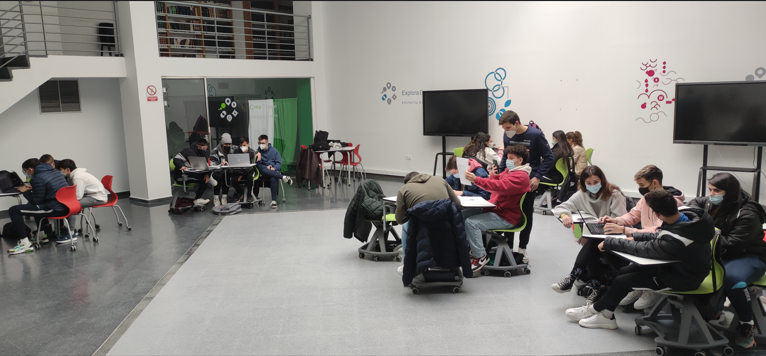
The research group “Nodo Educativo” developed, during the academic year 2021-2022, an educational innovation project entitled “Nodo Future Classroom Lab”, with funding from the University of Extremadura (Spain), which was coordinated by Professor María Rosa Fernández Sánchez. In the same academic year, the Teacher Training College opened its own Future Classroom. This space is about 200 m² in size and is designed and equipped following the recommendations of both the European Schoolnet and the National Institute of Educational Technologies and Teacher Training (INTEF) and the Future Classrom in Extremadura project of the Office of Education and Employment of the Regional Government of Extremadura. The objectives of this innovation project were: (a) To design and develop educational experiences in the Future Classroom with university students in the context of the subjects of the Education Degrees. (b) To elaborate and disseminate Open Educational Resources for the experiences developed in the Future Classroom. (c) To explore the use of Future Classroom in the university context.
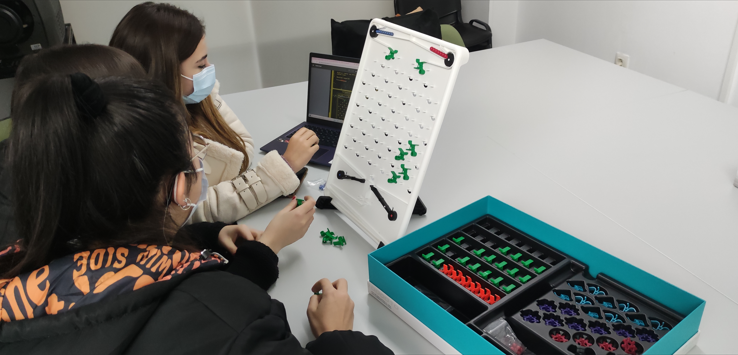
The Future Classroom in initial teacher training involves: (1) a space for reflecting on different pedagogical models and approaches. Having a classroom with different zones and flexible furniture allows for pedagogical practices that transform the traditional role of the teacher and students. (2) A distribution of the training action in different zones that acts as a scaffolding for new didactic practices. In order to foster change it is important to provide a structure or concept to act upon, to be inspired by and used to implement change and innovation. The different zones allow to visualise these future transformations of teaching practice and to make pedagogical ideas explicit. (3) An experience that allows students to be an active part in the development of the laboratory and to assume their own responsibility in the training process as future education professionals. (4) An opportunity to anticipate the use of future classrooms in schools in the Autonomous Community of Extremadura (Spain) and to have the experience and knowledge necessary to develop their own learning scenarios in their teaching practice period and, later on, in their professional performance.
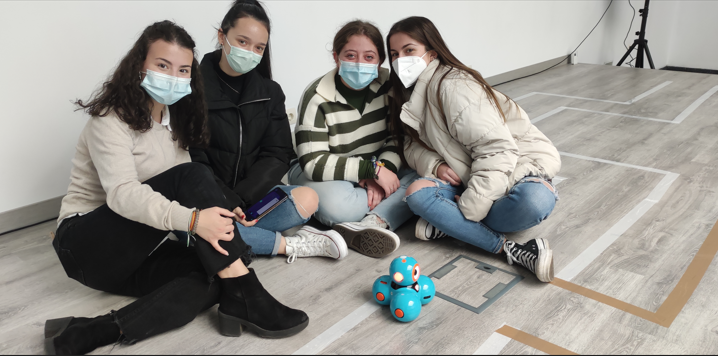
We have worked collaboratively developing both the design proposals and the development of the sessions in the Faculty’s Future Classroom. The main results have been: (a) design and development of six learning experiences in the Future Classroom; (b) design and development of six Open Educational Resources. With this project we have been able to understand the potential of this new educational space for the training of teachers and social educators, as well as to explore new active methodologies.
Open Educational Resources (SCORM)
Fernández-Sánchez, M. R., Durán Rodríguez, N., & Garrido Arroyo, M. del C. (2022). El Laberinto de las Influencias. https://doi.org/10.5281/ZENODO.6674398
Garrido Arroyo, M. C., Fernández Sánchez, M. R., & Durán Rodríguez, N. (2022). Viaje al Centro del Grupo. https://doi.org/10.5281/ZENODO.6721644
González Pérez, A., Revuelta Domínguez, F. I., & Llamas Salguero, F. (2022). Edición MED en el AdF. https://doi.org/10.5281/ZENODO.6760345
Guerra Antequera, J., Porras Masero, I., & Arriazu Muñoz, R. (2022). Videojuegos y Gamificación en el Aula del Futuro. https://doi.org/10.5281/ZENODO.6760256
Sosa Díaz, M. J., & Pedrera-Rodríguez, M. I. (2022). Recurso Educativo Abierto (REA) para el Grado en Educación Infantil: Aulas del Futuro. https://doi.org/10.5281/ZENODO.6760223
Valverde Berrocoso, J., Acevedo Borrega, J., & González Fernández, A. (2022). Aula del Futuro—Asignatura «Recursos Tecnológicos Didácticos y de Investigación» (Grado en Educación Primaria). https://doi.org/10.5281/ZENODO.6760233

Authors:
Jesús Valverde-Berrocoso y María Rosa Fernández-Sánchez
Grupo de investigación «Nodo Educativo»
Universidad de Extremadura (España)
